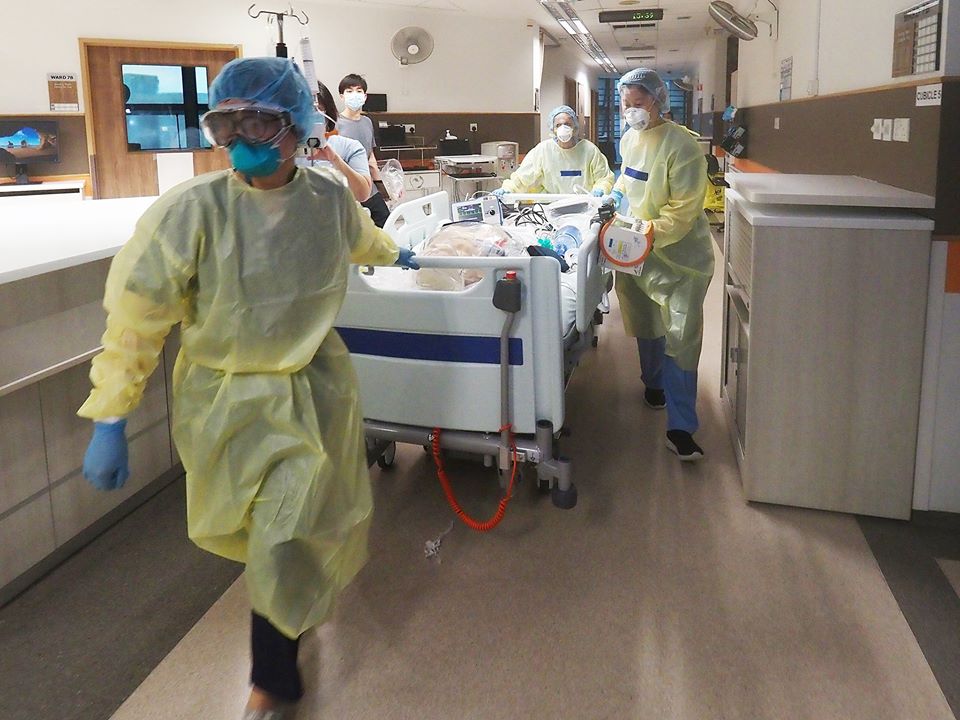One-Time ‘Circuit Breaker’ Probably Isn’t Enough As Virus Won’t Die Off, Says Harvard Study
Though it seems like it’s been an eternity, it’s actually only been about 4 months since Covid-19 surfaced. Though it has now spread worldwide at a never-before-seen rate and scale, researchers are still trying to understand the inner workings of the novel coronavirus.
A recent study from Harvard took a new approach to exploring the severity of Covid-19. Using a computer simulation to test out different scenarios, it found that it’s possible that the virus will pose a problem for years to come.
If that’s the case, then we might just need to prepare for more rounds of ‘Circuit Breakers’ and social distancing measures of various degrees until perhaps 2022.

Read on for the breakdown on the study’s findings.
Harvard study used model to test scenarios
The research team, whose study was published in the journal Science on Tuesday (14 Apr), used a computer simulation to run different scenarios of virus transmission.
They treated the novel coronavirus that causes Covid-19 like other coronaviruses, e.g. ones that cause the common cold, which tend to be seasonal. Cases of these tend to spike during the colder seasons.
Using a timeline of years rather than weeks or months also gave them a different perspective on the disease.
Periodic ‘Circuit Breakers’ needed to manage long-term spread
The study concluded that periodic social distancing – that’s our ‘Circuit Breaker’ – might be necessary for healthcare services to manage the coronavirus long-term.
Basically, when the number of cases fall and social distancing measures are relaxed, a large number of cases may re-emerge, and another ‘Circuit Breaker’ period would be necessary to curb the spread and help healthcare services manage the influx of fresh cases.
The study’s lead author Stephen Kissler was quoted as saying by Agence France-Presse,
We found that one-time social distancing measures are likely to be insufficient… What seems to be necessary in the absence of other sorts of treatments are intermittent social distancing periods.
Assuming that testing and treatment is available, the length of the lockdowns and how restrictive they are can be adjusted.
But if a vaccine, new modes of treatment or better healthcare capacity isn’t forthcoming, safe distancing measures “may need to be maintained into 2022”, the study said.
Too much social distancing is harmful
If you’re wondering why social distancing should be periodic instead of constant, it’s because too much of it is also detrimental — this is due to lack of herd immunity.
Herd immunity is when a population is relatively immune to a disease as a whole. This can come from vaccinations, or just developing resistance over time and exposure.

The study wasn’t able to pinpoint how immune communities are or will be to Covid-19, since the coronavirus is still so new to us.
But one simulation showed that a community with constant social distancing had basically no immunity to Covid-19, and would definitely be susceptible to a massive outbreak.
Cases could spike again in the future without a vaccine
Viral testing is still needed to determine how and when to put social distancing measures back in place, but periodic ‘Circuit Breakers’ may become a reality if a vaccine isn’t developed soon.

Even with the treatments available and strategies to manage the spread, a vaccine really is necessary to kill off Covid-19, and one-time ‘Circuit Breaker’ would not be enough to kill it off completely — subsequent reprises could be even worse without further periods of safe distancing measures.
Another scenario in the study predicted that without a vaccine, the virus could come back years into the future, even up till 2025, reported The Guardian.
Thus, the study was quite sure that Covid-19 won’t be going anywhere soon, as herd immunity will probably not be potent or protracted enough for the virus to disappear after one wave.
Study’s assumptions aren’t confirmed yet
Although the study was praised by the scientific and medical communities, the researchers behind it acknowledged its limitations, especially its lack of clarity on people’s immunity to Covid-19.
Until more is known about that, its results are only hypothetical, and not proven.
We do hope that it helps in understanding the nature of the coronavirus more, and maybe even inspires a breakthrough in finding a vaccine.
Featured image by MS News.

Drop us your email so you won't miss the latest news.










